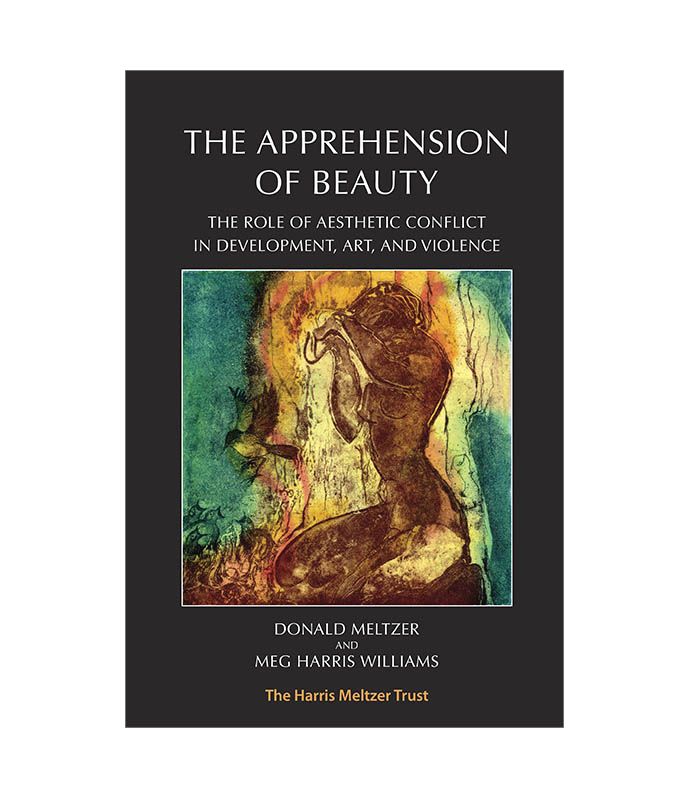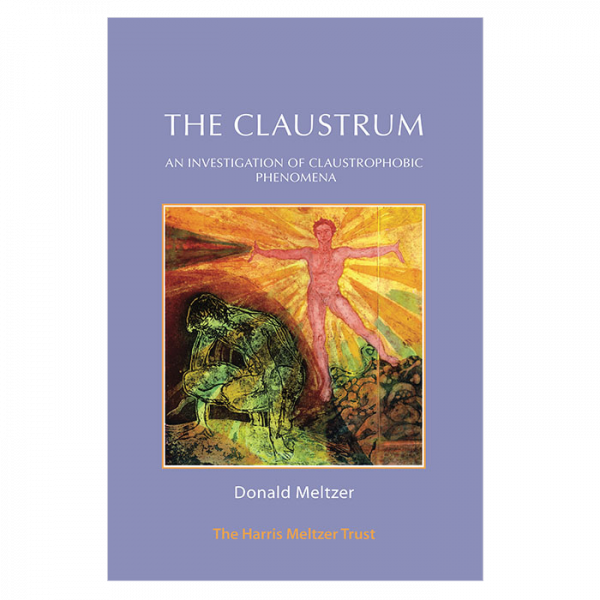In this book Donald Meltzer formulates his concept of ‘aesthetic conflict’, at the heart of personality development. Clinical material interdigitates with literary criticism by Meg Harris Williams illustrating the same theme. The revised psychoanalytic model of the mind that results suggests how the aesthetic aspects of just being born can have simultaneously a most violent and a most tender impact upon the human mind. The impact of the aesthetic conflict is investigated by the two authors in work with patients, in creativity and art. They demonstrate how the psychoanalytical process itself stands as an artform; and how clinical material, dreams, artworks, poems and plays can all be connected to the aesthetic conflict.




Gilead Nachmani, Psychoanalyst, William Alanson White Institute, New York –
‘Celebrating the twentieth anniversary of its first publication, the re-issue of this book which has become among the most significant and classic contributions to post-Kleinian thought and learning, is surely a welcome and much anticipated event. Aesthetics, beauty, and the aesthetic conflict, have been the building blocks of psychoanalysis, a revised developmental scheme of “love-at-first sight” mother–child relationship with its consequent good internal object formation, and the critical reading of literature and poetry. This book represents the gems of thought and discovery in the works of Meg Harris Williams and Donald Meltzer.’
Sandra Gosso, Specialist in Psychology of art, researcher at the Department of Philosophy, University of Pisa –
‘”The Apprehension of Beauty” comprises in a nutshell the Meltzerian innovations in psychoanalytic thought, in particular his application of Bion’s theory of the apprehension aroused by the “new idea” as pointing specifically to the “mystery” at the nucleus of the “aesthetic conflict”. The book, assembled by two pairs of hands, reviews various aspects of the aesthetic conflict, alternating clinical essays and those of literary criticism, serving to demonstrate how the process set in motion in analysis and in the coming to fruition of an art work are essentially one.’
Dorothy Hamilton, Training therapist and supervisor, Association for Group and Individual Psychotherapy –
‘This beautifully conceived and written book has the power to inspire, both for its passionately felt insights into the origins of the human capacity to apprehend beauty, and for the sheer breadth of the sources on which it draws. And thanks to Meg Harris Williams’ rich and evocative contributions from the world of literature, the book will have wide appeal beyond those privileged through the psychoanalytic encounter to enjoy what Meltzer calls ‘the most interesting conversation in the world’. The work they have created between them may be said truly to deliver the ‘blow of beauty’ of which it speaks.’
Grete Tangen Andersen, Morten Andersen, Trond Holm, Jon Morgan Stokkeland, Lilian Stokkeland, Eirik Tjesem (The Meltzer Study Group, Stavanger, Norway) –
‘The book presents a psychoanalytic model of the mind that suggests how the aesthetic aspects of just being born can have simultaneously a most violent and a most tender impact upon the human mind. It elaborates the impact of the aesthetic conflict in work with patients, in creativity and art. The two writers show, in a beautiful way, how the psychoanalytical process itself stands forth as an artform; and how clinical material, dreams, artworks, poems and plays can all be connected to the aesthetic conflict. The interplay between Meltzer’s clinical material and Harris Williams’s interpretations of Shakespeare and poetry, brings the two minds in the book in juxtaposition and we catch a glimpse of the interactive influence they must have had on one another – an influence that created the great psychoanalytic object that is “The Apprehension of Beauty”.’